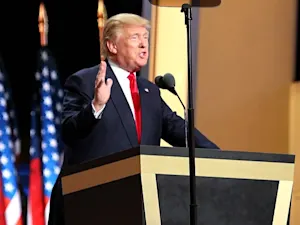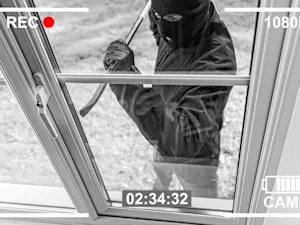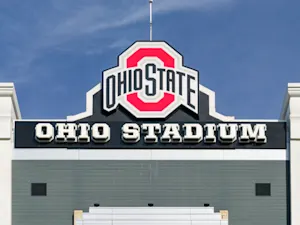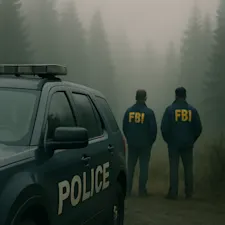
TSA Could Be Abolished — Even Amid Air Travel Disasters
TSA Passenger Screening Canine. Photo courtesy of Transportation Security Administration. Public domain.
The Transportation Security Administration — the agency famous for pat-downs, liquid limits, and long security lines — is now in the crosshairs of a proposed Republican bill. And the push to shut it down isn't coming from the usual critics. It's being led by two GOP senators who want to eliminate the agency entirely.
The 'Abolish TSA Act'
Sen. Mike Lee of Utah and Sen. Tommy Tuberville of Alabama introduced the "Abolish TSA Act of 2025" in March. The bill proposes the complete elimination of the Transportation Security Administration, with all of its authorities and functions either transferred or dissolved under the direction of the Department of Homeland Security Secretary.
Their proposal also includes a plan to privatize all airport screening operations and establish a new oversight office — the Office of Aviation Security Oversight — housed within the Federal Aviation Administration. The measure outlines a three-year transition timeline to phase out the TSA and fully transfer responsibilities to private security providers.
What's the Problem With TSA?
TSA was created in 2001 after the 9/11 attacks and became a key component of the Department of Homeland Security. It now oversees security for air travel, mass transit systems, freight and passenger rail, highways, pipelines, and ports.
The agency employs around 65,000 workers and had a 2024 budget of $10.4 billion. Last year, TSA officers screened 904 million passengers and 494 million checked bags — a 5.3% increase over 2023.
Despite this scope, critics of the agency — especially on the right — claim the TSA is intrusive and ineffective. Past undercover investigations have shown major failures. In a 2015 study, agents missed 95% of test weapons, and in a 2017 follow-up, screeners failed to catch prohibited items in more than half of the cases tested, although specific percentages weren't released publicly.
Supporters of the bill also point to issues like long wait times, invasive searches, and ballooning costs. The senators backing the bill argue that private contractors could handle airport security more efficiently and with greater respect for civil liberties.
Facial Scans and Surveillance Worries
Concerns over passenger privacy have escalated with TSA's introduction of facial recognition technology at airports across the country. The system has drawn bipartisan criticism, with some lawmakers accusing the agency of expanding surveillance without adequate oversight.
Although TSA has stated that facial scans are optional and that no personal data is retained, senators remain unconvinced. They have called for independent reviews of the technology's accuracy and stronger safeguards to prevent misuse.
Will This Bill Actually Pass?
Despite gaining attention, the bill has limited chances of becoming law. Republicans currently control 53 Senate seats, short of the 60 needed to overcome a filibuster. Democrats have expressed strong opposition and are unlikely to support privatizing national airport security.
The measure does require the Homeland Security and Transportation secretaries to submit a reorganization plan to Congress. This plan must ensure that private security companies are not authorized to conduct warrantless searches or recreate TSA under a different name.
Why This Matters Now
The campaign to abolish TSA comes at a time when the aviation industry is under intense scrutiny. In recent months, there have been multiple serious incidents, including a deadly Black Hawk helicopter collision near Washington, D.C., a fatal medical transport jet crash in Philadelphia, and a February Alaska flight crash that killed 10 passengers. A Delta® flight from Minneapolis to Toronto also flipped during landing, injuring 18 people. These events have raised ongoing concerns about air travel safety.
As these investigations continue, the idea of removing a major security agency is sparking questions about whether this is the right time to take such a risk — or the perfect opportunity to reimagine air travel security from the ground up.
References: Why are Republicans trying to abolish TSA? | Republicans look to abolish TSA in favor of private security at airports
























